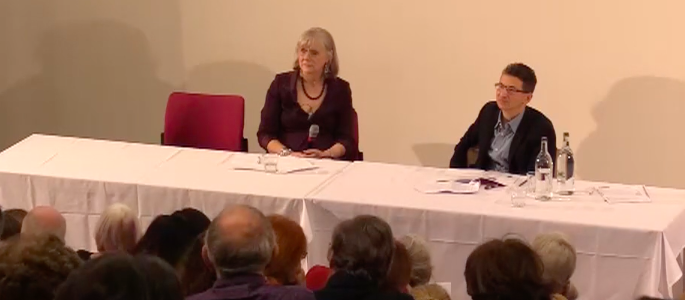Marcia Holmes and Daniel Pick’s new article ‘Voices Off: Stanley Milgram’s cyranoids in historical context’ is available to read and download.
Tag: Social Sciences History and Philosophy
Lisa Guenther, Philosopher of Prisons

During June and July 2019, the Hidden Persuaders group invited political philosopher Lisa Guenther to lead a series of events on the topic of incarceration. A podcast of her keynote lecture ‘No Prisons on Stolen Land: Prison Abolition and Decolonization as Interconnected Struggles’ is now online.
Gifted Children as Hidden Persuaders in the Cold War
Jennifer Crane explores how gifted children were imagined as potential peacetime leaders, or as dangerous future citizens who might use their unique talents to subvert authority.
Healing and Haunting at Kingston’s Prison for Women
In this second essay of a two-part series, philosopher Lisa Guenther explores what a meaningful memorial might be for the Prison for Women in Kingston, Ontario – a former site of prisoner abuse and psychiatric experimentation on vulnerable women.
Memory and Forgetting at Kingston’s Prison for Women

In the first of a two-part series, philosopher Lisa Guenther introduces the Prison for Women in Kingston, Ontario. As the former home of hundreds of incarcerated Canadian women, it was a site of unethical human experiments and other forms of prisoner abuse.
Disalienation: Philosophy, Politics, and Radical Psychiatry in France

In this lecture, hosted by the Hidden Persuaders project and the Berlin Institute for Cultural Inquiry, Camille Robcis explores the intersections of politics, philosophy, and radical psychiatry in 20th century France.
‘Free Associations? Psychoanalytic History, Democracy and the State We Are In’

What is ‘the state we are in’? In this wide-ranging lecture, Daniel Pick reflects upon the history of psychoanalysis, politics and democracy.
Manipulation Out of Control: J.A.M. Meerloo’s ‘Menticide’
Maarten Derksen uncovers the history of ‘menticide’, an alternative way to understand brainwashing made popular in Meerloo’s 1956 The Rape of the Mind.
A “Common Madness”: TV Psychics and Hypnosis in the Soviet Union
Did Soviet broadcasters use hypnosis to persuade their viewers to conform to communism? Simon Huxtable explores the story of TV ‘psychotherapist’ Anatoly Kashpirovsky, and the rise of parapsychology and suggestion in the last years of the Soviet Union.
On UFOs and the Cold War Human Sciences: An Interview with Greg Eghigian
The flying saucer era, argues Greg Eghigian, began at the dawn of the Cold War period and came to be viewed through its prism.


